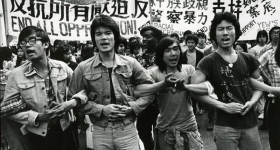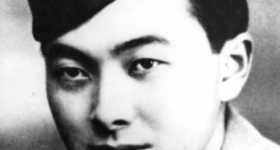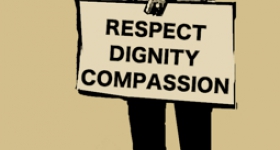The morning of March 15th was just like any other. It was Jummah, the holy day for Muslims. I was sipping chai and watching BBC early in the morning and hadn't checked any news since 9 pm the previous night. New Zealand Prime Minister Jacinda Ardern was condemning some sort of attack. My heart sank, fearing the worst. Growing up post 9/11, I worried a Muslim had done something because in my experience of watching the news, that is what attracts headlines. But it was a mass shooting on two mosques in Christchurch.
I went numb.
I watched wide-eyed as Prime Minister Ardern stated that this was one of the country’s “darkest days.” My numbness became weaker and suddenly I felt my eyes water. Then I heard the total number of deaths: 49 (as of now it’s 50). Once I collected myself, I realized that there was not much to be shocked about. In the aftermath, Australian journalist and writer Waleed Aly, who happens to be Muslim, explained how prior attacks on houses of worship worldwide in Quebec, London and Pittsburgh did not surprise him. In an evening telecast, he said “If we’re honest, we’ll know this has been coming.”
Looking back on my life experiences, I can see why.
Growing up in a post-9/11 world as a Muslim American female is tough, especially as a hijabi because you wear your faith on your sleeve. I've had to get used to the discomfort and be strong in my identity and always be on the defensive. I've had to face microagressions: watching my mom occasionally mistreated because she wore the hijab, dealing with angry TSA workers looking at her and my grandmother with suspicion, or even the time we were walking in London and a man asked what she was hiding in her overcoat (to which she cheekily responded: what did he have hiding in his jacket?).
When I started to observe the hijab at age 14, I often felt like a walking target. One neighbor down the street never opened his door if we accidentally got his mail. He taught his kids to do the same. Weird stares at the grocery store were normal despite living in the diverse suburbs of Washington D.C. And while my high school peers and teachers were respectful and tolerant of me, there were uncomfortable moments. Once, we were reading writings from the Renaissance and examining how women began gaining more freedom and rights in my 12th grade English class. Around the same time, an article in Time magazine came out about certain workplaces in Saudi Arabia permitting women to remove their hijabs in the office. Out of nowhere during our discussion, my teacher decided to ask me about my rights as a woman. He then referred to the Time article and made some statement along the lines of how women all the way in the Renaissance had many rights while women in Afghanistan (which he incorrectly stated instead of Saudi Arabia) were still struggling. A classmate was shocked at his behavior and asked me if I was okay. She even emailed him to say he thought calling me out was very inappropriate.
He never responded.
I have been fortunate to live in an area where I haven’t faced too much open harassment. I went to a pretty diverse and liberal university with a notable Muslim presence. People were more open-minded, and as a global affairs student, studying different cultures and histories was a given for me and my peers. In graduate school, I focused on Latin American studies, so classes always included themes of marginalized groups’ immigration and studying and empathizing with victims of human rights abuses and extremism were understood.
But I still felt at times, under a microscope by my peers.
After any attack or shooting by a Muslim, I was scared to leave my house. I dreaded going to the grocery store and I didn’t want to get on the train. It was like I was forever guilty for crimes I never committed. I felt I had to be on extra alert during those times, always worried someone might take their anger out on me. And as I experienced these moments of fear and backlash after attacks including the Boston Marathon or San Bernardino, I began to see that terrorism was being called out. It just was not being called out on all fronts.
I cried...when I learned about New Zealand. I cried because I didn't have strength to be defensive anymore. I didn't need to be. This was actually being called out for what it was: terrorism.
When the shooting at a Sikh gurdwara happened in Oak Creek, WI in 2012, mass shootings by white supremacists were not as prevalent as they are today. The shooter was a white supremacist with openly racist views. Luckily, it was labeled as “domestic terrorism.” As a young college student, I optimistically hoped nothing like this would happen again. While I didn’t cry, the loss of life of Sikh worshippers who loved their religion and community just as I did struck me to my core. As a Punjabi and Muslim, I could picture myself in a similar situation at the mosque with families and friends gathered together to pray, learn, socialize and eat. I could imagine the aunties and uncles asking about career plans and what I was studying. I felt guilt knowing Sikhs are often mistaken for being Muslims (not that it made hurting either of us okay) and I was scared that someone might come to my mosque next.
Just a month earlier, I was getting off the bus from my very first internship and into my car. As I stopped to pick up groceries and drive back home, I noticed a paper in my windshield. It was a cartoon of the Prophet Muhammed (peace and blessings be upon him) with a cannon bomb as a turban with women in niqaab around him holding knives. I was scared and embarrassed that a derogatory image was on my car. I went with my parents that night to report it to the police. But there was never any follow-up. My mom was worried someone may have been following me and immediately told me to change my bus route.
When three Muslim students were murdered execution-style in their apartment in 2015 in Chapel Hill, NC, I was depressed, scared and frustrated it wasn't labeled as a hate crime but merely labeled as a parking dispute. I shared my fear and sadness with a fellow graduate student, who tried to be nice but didn’t really take interest or sympathize with my concern. The culprit’s wife got a full interview on why her husband was not a racist. But how was this not terrorism?
Two years later, the Quebec mosque shooting in 2017 left me at a loss. I was tired and angry because I knew extremism was hitting communities again and again, yet no one was making a big deal because the murderer didn't meet the definition of being a terrorist. The shooter wasn’t charged with terrorism despite being aligned with right wing ideology.
When nine black worshippers were murdered in 2017 at the Emanuel African Methodist Episcopal Church in Charleston, SC, I was furious. The murderer, Dylan Roof, was peacefully taken into custody and was even bought Burger King by officers on his way to jail. No one was taking white supremacy seriously. But had the perpetrator been a Muslim, I knew we’d be talking about raising terror threat levels and how the Muslim community needs to be more aware about people in our communities. I was furious — but I still didn't cry. Was I beginning to just accept this trend as the norm?
I also remember 2017 as the year when two men were stabbed for defending a hijabi girl and her friend on a Portland MAX train. I was sad and amazed how two people lost their lives to defend the lives of others. It gave me hope that there were allies out there. Unfortunately, it was at a cost.
I’m usually nervous after any attack to get on the train. But this time I was extra shaky. And yet, I didn’t cry. I guess this was the way my life was supposed to be — constant fear in the back of my mind for being visibly Muslim.
But I cried this time around when I learned about New Zealand. I cried because I didn't have strength to be defensive anymore.
I didn't need to be. This was actually being called out for what it was: terrorism. Prime Minister Ardern added those responsible held “extremist views” and stated that "it is clear that this can now only be described as a terrorist attack." Mainstream media channels were actually discussing right-wing extremism. Muslims were seen as humans who were suffering.
It indeed may seem callous that this is the attack that broke me. But there is no difference between all of these attacks. What I felt during 2012’s Oak Creek terror attack was grief but the hope that this was a rare incident. What I felt this time around was the realization that I had seen such a repetitive pattern of extremism in so little time with very little action. Some of us were just more perceptive to it than others because we've been under the microscope and unofficial spokespeople for radicalization and extremism. And the statistics speak for themselves.
I cried...when I learned about New Zealand. I cried because I didn't have strength to be defensive anymore. I didn't need to be. This was actually being called out for what it was: terrorism.
New Zealand’s government openly took steps to say that the culprit was a white man with racist beliefs in so-called “white genocide.” They even banned military-style assault rifles from the country to prevent such massacres. But extremism, particularly right-wing extremism, is statistically on the rise in the United States. In fact, in an intelligence bulletin, the Department of Homeland Security and the FBI concluded that white supremacy extremists "were responsible for 49 homicides in 26 attacks from 2000 to 2016 … more than any other domestic extremist movement.” In a report tracking right-wing extremism in the United States, the Anti-Defamation League found that between 1993 and 2017, 150 attacks were carried out by mainly white supremacist and anti-government extremist. As a result, 255 people had been killed with around 603 injured in the past 25 years.
It took 50 souls murdered on a blessed Friday for some to realize that radicalization and terrorism hurt all communities. We all suffer when we don't target it at all levels. We all suffer when we assume extremism and radicalization only come from certain communities and not others. Will it take 50 murdered worshippers in America to acknowledge right-wing extremism is a problem? Or will we just stick to thoughts and prayers?
As we move on from what happened in Christchurch, I know existing as I am is a risk. However, I take this as an opportunity to reevaluate myself as an individual. It is also an opportunity to heal on a personal level and know that despite all the harm that has been done, there is hope. I have had allies come by to my mosque to drop off flowers, ask me if I am okay and reach out with condolences. With Ramadan around the corner, I know I will need to stay vigilant in my spirituality, identity and my safety. What I do know is that I am a person of faith. I believe in God, try to pray regularly and go to the mosque. But I believe prayer needs to be followed up with actions for positive change.
I think of this verse from the Quran about how positive efforts can push away negativity: “Surely, good works drive away evil works. This is a reminder for those who would remember.” (11:115) And so, I remember that I turn to God in times like this because it gives me comfort to know that I have spiritual support. I know we have all been hurt by forms of hatred and extremism. I know I am not the only one afraid and concerned. I know that I am not the only one who’s seen this repetitive pattern before. But I know through each of our good works, however small, we can break this pattern. I know that just like the people of New Zealand, we will all heal. I know that one day I will not have to put on a brave face nor be defensive nor shed tears. A Jew can peacefully observe Sabbath, a Sikh can enjoy langar in their gurdwara and I can pray safely every Friday with my family in the mosque. InshAllah.









Comments